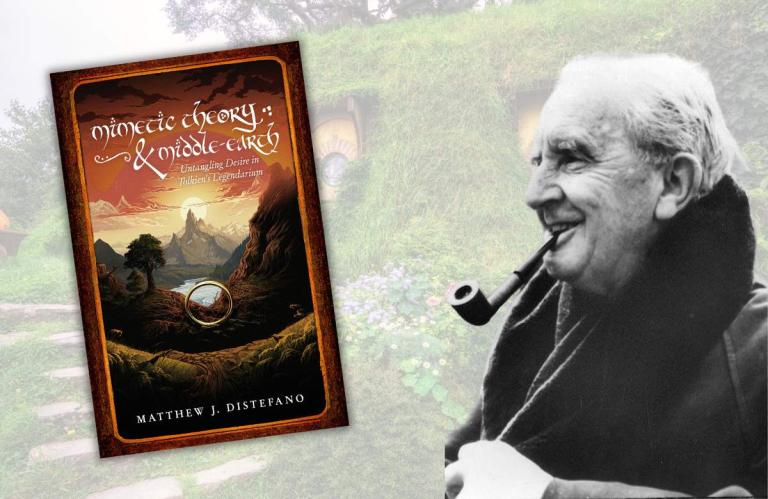
In one of my latest books, Mimetic Theory & Middle-earth, I explore the brilliant world of J.R.R. Tolkien through the lens of René Girard’s mimetic theory, unpacking the profound wisdom hidden within The Lord of the Rings. It’s no secret that literature has the power to reveal deep truths about humanity, and Tolkien’s legendarium offers us an invaluable mirror to reflect on our world. Through Frodo’s journey, the corruption of the One Ring, and the enduring hope in the face of darkness, we find lessons that help us become better, more loving, and compassionate beings.
At the heart of the book lies Girard’s concept of mimetic desire, which shows how human beings imitate one another’s desires, often leading to conflict, violence, and ultimately, scapegoating. We see this everywhere—from global politics down to our personal relationships. But The Lord of the Rings doesn’t just expose the destructive side of mimetic desire; it also offers us a way forward, a path toward peace and redemption.
Consider the One Ring: its allure lies in its power to control and dominate, to make others envy and desire what it represents. Yet, the Ring’s power destroys everyone who seeks it. Sauron, Gollum, Boromir—all fall prey to its temptation. But Frodo’s journey, marked by self-sacrifice and perseverance, shows us a different kind of desire—a desire not for power, but for healing and wholeness. His willingness to carry the burden of the Ring, despite its corrupting influence, mirrors the Christian notion of bearing each other’s burdens—a deeply human, deeply loving act.
We can learn from Frodo and Sam’s relationship, which exemplifies how we might resist the forces of competition, envy, and domination. Their friendship is rooted in mutual care, humility, and a shared sense of purpose. In a world that glorifies power and self-interest, Tolkien’s depiction of genuine friendship invites us to reimagine how we relate to one another in our daily lives. What would our communities look like if we embraced this kind of love and sacrifice?
Throughout the book, I draw on examples like these to illuminate how literature, especially The Lord of the Rings, can teach us to live more compassionately. Tolkien’s mythic world calls us to stand against oppression, to resist our baser instincts, and to nurture the bonds of solidarity. And as Girard’s mimetic theory makes clear, we have the choice to either follow the path of rivalry and violence or to embrace the path of forgiveness and grace.
In a world increasingly marked by division and conflict, I believe literature like Tolkien’s holds a special place in calling us back to our shared humanity. Mimetic Theory & Middle-earth is not just a deep dive into the intricacies of Tolkien’s works; it’s a call to action—a reminder that we are capable of rising above our destructive desires, of becoming agents of love and healing in a broken world.
If you’re a fan of The Lord of the Rings or intrigued by the intersection of psychology, theology, and literature, this book will resonate deeply with you. I invite you to join me on this journey, where we can learn together how to foster a more compassionate and just world, one that reflects the goodness and hope that Tolkien so powerfully portrays.
I hope this book serves as both a reflection and a guide, inspiring you to dig deeper into the wisdom of Middle-earth—and ultimately, to become a better, more loving human being.
Also, if you’ve been digging my work on here, and want to see me be able to continue writing as close to full-time as humanly possible, please take a look at my Patreon page at www.patreon.com/mjdistefano. Even $1 a month helps bigly!














